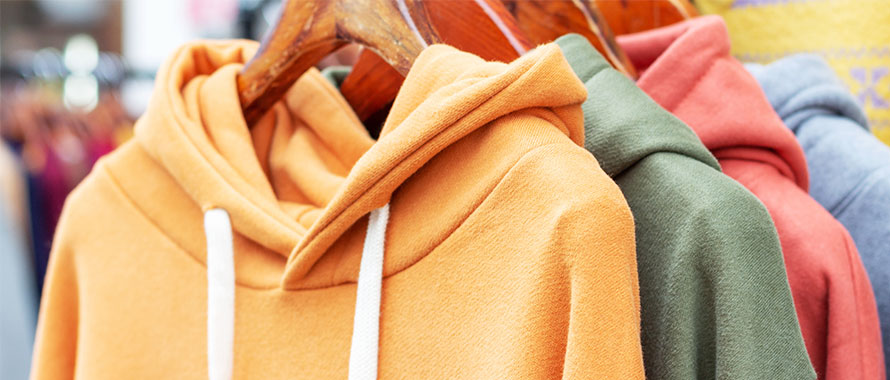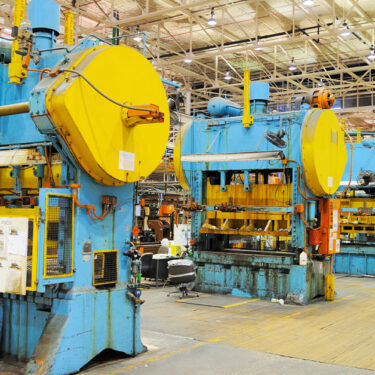A glow-in-the-dark sweatshirt sold on Temu was recently recalled after the report of a child suffering serious burn injuries from the garment. The item, sold on the discount online marketplace on behalf of Sunshine Towels, carries a risk of “serious burn injuries if exposed to heat or a flame source,” according to the recall notice, issued by Product Safety Australia, the New York Post reported in November. Temu urged customers to destroy or dispose of the sweatshirts.
Featured Solutions
“Temu is such a wide-reaching website and is attracting a lot of attention at this point in time. It could take them some time to track down all of those orders,” Peel said. “A recall could be very complicated, depending on where the product was originally manufactured, who is importing the product, and where it goes from there.”
A recall could be very complicated, depending on where the product was originally manufactured, who is importing the product, and where it goes from there.
Multiple sweatshirt designs were included in the recall, which notes that the items do not carry the required warning label, making them unsuitable for children’s nightwear. If lawsuits are filed over customer injuries, any company involved in the product and its sale could be pulled into the litigation, with legal defense, settlements, and other expenses potentially covered under their Product Liability Insurance.
If a family sues for injuries or emotional distress, this is where Product Liability Insurance can come in,” said Connor Block, Broker, Commercial Insurance, Burns & Wilcox, Chicago, Illinois. “Product Liability Insurance policies are triggered by bodily injury or property damage, whereas Product Recall Insurance policies are triggered by the threat of bodily injury or property damage and provide coverage for the costs associated with a recall event.”
International recalls could bring complications
The recent sweatshirt recall is not the first product recall involving a children’s clothing item sold on Temu. In July, the U.S. Consumer Product Safety Commission announced the recall of multiple children’s nightgowns due to burn hazards and the violation of federal flammability standards. The items were sold exclusively on Temu.com by the brand Lovely Angel. In September, U.S. federal safety regulators called for an investigation into sites like Temu and Shein over concerns that consumers can easily purchase products that do not meet government safety regulations, ABC News reported.
“From a recall standpoint, if the product is manufactured in a foreign country, obtaining and sending back those items could be very difficult,” Peel said. “Everybody in the chain, including the product importer or wholesaler, should have insurance. If the product is coming from a foreign country where there may not be direct repercussions, the wholesaler could be on the hook for any injuries caused by it.”
If a family sues for injuries or emotional distress, this is where Product Liability Insurance can come in. These policies are triggered by the threat of bodily injury or property damage.
In addition to potential Product Liability lawsuits, product manufacturers and retailers could face many expenses related to this type of recall, including notifying customers about the recall and shipping back affected products. Product Recall Insurance, which can respond to both voluntary and involuntary recalls, can help pay for these costs and more, such as business interruption expenses, crisis management services, brand rehabilitation and third-party losses. This coverage is important for businesses to consider, especially since Product Liability Insurance usually includes only a small sublimit for recall expense, Block said.
“With a lot of these products being made in China, the company that sells it here may be considered the manufacturer, even if the product is manufactured elsewhere,” he said. “Product Liability Insurance is often a domestic-only policy, but most Product Recall Insurance policies have worldwide coverage.”
Product Recall Insurance can also help companies recover from reputational damage due to a recall, which can be substantial. “You cannot really measure the reputational risk for something like this,” Block said, adding that some companies have gone out of business after major recalls.
The cost of product injury lawsuits
Recalls involving children’s products are not uncommon. In the U.S., 101 children’s products were recalled in 2023, according to Statista. In Canada, 7 million units of products were recalled during fiscal year 2021-22, 15% of which were children’s products, according to Health Canada.
In June, 21 million Miniverse toy sets were recalled by the Consumer Product Safety Commission due to the risk of skin burns as well as eye and respiratory irritation, CNN reported. An additional 1 million sets were sold in Canada. In April, Global News reported on a series of baby products recalled by Health Canada, with risks ranging from fire to strangulation.
“When it comes to children, obviously there is a heightened awareness for everybody,” Peel said. “Getting the notice out about a recall is very important, especially around Christmas.”
Lawsuits over product-related child injuries or fatalities can be extremely damaging. In February, Target and a hoverboard manufacturer agreed to pay $38.5 million to settle a lawsuit that was filed after a scooter caused a house fire while charging and led to the deaths of two girls, Law360 reported.
The incident involving the glow-in-the-dark Temu sweatshirt “sounds like a horrific injury,” Peel said, and it is likely that a lawsuit could be filed in this type of case. According to Block, lawsuits over children’s toys and infant products are more common than clothing-related lawsuits due to a higher risk of injuries with those items.
“Clothing itself is not something many companies see as a major threat to bodily injury,” Block said, adding that these companies “may not be as well-versed” in responding to injury lawsuits or recalls. “It is certainly something they should be aware of, especially with children’s clothes or items that use glow-in-the-dark material, which could make it higher-risk.”
How manufacturers, retailers can manage risks
Having strong quality control practices in place can help manufacturers reduce the risk of a product safety recall or lawsuit, Peel said. Retailers can also work to limit their risks by researching the wholesalers they work with and “having upfront and honest conversations” about product testing and safeguards to ensure they are protecting themselves, he said.
Taking products off of shelves is really just the tip of the iceberg [of potential recall costs].
Companies should review their insurance policies to fully understand their coverages, limitations and exclusions — especially when it comes to Product Recall Insurance, which many companies do not carry, Block said.
“Taking products off of shelves is really just the tip of the iceberg” of potential recall costs, he said, adding that these policies can include consultant services to help companies strengthen their risk management procedures. “If you have a Product Recall Insurance policy, make sure that service is on there — and use it. These consultants are experts. They can have mock recalls set up, identify your pressure points, and when things go wrong, they can give you a better idea of how to react and how to move forward.”






